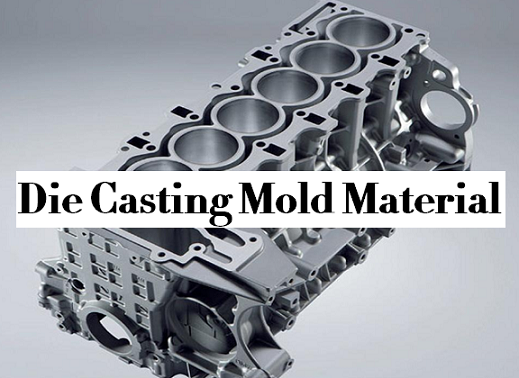The 6-Minute Rule for Stahl Specialty Company
The 6-Minute Rule for Stahl Specialty Company
Blog Article
Excitement About Stahl Specialty Company
Table of ContentsThe Ultimate Guide To Stahl Specialty CompanyThe 8-Second Trick For Stahl Specialty CompanyWhat Does Stahl Specialty Company Mean?Excitement About Stahl Specialty CompanyThe Stahl Specialty Company PDFs
The subtle distinction depends on the chemical content. Chemical Contrast of Cast Light weight aluminum Alloys Silicon promotes castability by reducing the alloy's melting temperature level and enhancing fluidness throughout spreading. It plays a vital role in permitting elaborate molds to be filled up precisely. Additionally, silicon contributes to the alloy's stamina and put on resistance, making it useful in applications where sturdiness is vital, such as vehicle parts and engine parts.It likewise boosts the machinability of the alloy, making it much easier to refine right into completed items. In this means, iron contributes to the general workability of light weight aluminum alloys.
Manganese contributes to the toughness of aluminum alloys and enhances workability. It is frequently used in wrought light weight aluminum items like sheets, extrusions, and profiles. The visibility of manganese help in the alloy's formability and resistance to fracturing throughout construction procedures. Magnesium is a lightweight aspect that gives stamina and effect resistance to aluminum alloys.
It allows the manufacturing of light-weight elements with superb mechanical buildings. Zinc boosts the castability of light weight aluminum alloys and aids manage the solidification process during casting. It enhances the alloy's toughness and hardness. It is frequently located in applications where complex shapes and fine details are required, such as ornamental castings and particular vehicle parts.
Some Known Facts About Stahl Specialty Company.
Since aluminum-silicon alloys have great spreading buildings, high gas residential or commercial properties, straightforward procedures, and excellent corrosion resistance, aluminum-silicon alloys are most typically made use of in the die-casting industry at home and abroad. At the exact same time, aluminum-silicon alloys are also relatively early and extensively recognized alloys developed and used in die-casting. After constant research study and renovation, a lot of the existing worldwide mainstream aluminum-silicon alloys have been completed and are absolutely nothing even more than A356, A360, A380, ADC12, B390, and A413.
The primary thermal conductivity, tensile toughness, return toughness, and elongation vary. Amongst the above alloys, A356 has the greatest thermal conductivity, and A380 and ADC12 have the cheapest.

Stahl Specialty Company Can Be Fun For Everyone
In accuracy casting, 6063 is fit for applications where complex geometries and top notch surface finishes are vital. Instances consist of telecommunication units, where the alloy's superior formability permits streamlined and cosmetically pleasing designs while maintaining architectural stability. Similarly, in the Lights Solutions industry, precision-cast 6063 components develop classy and efficient lighting fixtures that call for intricate shapes and excellent thermal performance.
(https://disqus.com/by/stahlspecialc/about/)
It brings about a finer surface finish and much better rust resistance in A360. Additionally, the A360 exhibits superior prolongation, making it perfect for complex and thin-walled elements. In accuracy spreading applications, A360 is appropriate for markets such as Consumer Electronics, Telecommunication, and Power Devices. aluminum foundry. Its boosted fluidity permits detailed, high-precision parts like smartphone cases and communication tool housings.

In accuracy spreading, aluminum 413 beams in the Consumer Electronic Devices and Power Tools industries. This alloy's exceptional corrosion resistance makes it an excellent choice for outside applications, making certain durable, sturdy items in the stated sectors.
See This Report on Stahl Specialty Company
The aluminum alloy you select will significantly impact both the casting process and the residential or commercial properties of the last product. Due to the fact that of this, you have to make your choice very carefully and take an enlightened approach.
Figuring out the most ideal light weight aluminum alloy for your application will certainly suggest weighing a large variety of characteristics. These relative alloy attributes follow the North American Pass Away Spreading Association's guidelines, and we've split them right into two classifications. Foundry. The initial group addresses alloy features that influence the manufacturing process. The 2nd covers characteristics impacting the residential or commercial properties of the final product.
The alloy you choose for die casting directly affects several elements of the casting procedure, like how simple the alloy is to collaborate with and if it is vulnerable to casting flaws. Hot cracking, also understood as solidification fracturing, is a common die spreading issue for aluminum alloys that can lead to internal or surface-level rips or splits.
Not known Details About Stahl Specialty Company
Certain light weight aluminum alloys are more prone to hot splitting than others, and your choice must consider this. An additional typical problem found in the die spreading of aluminum is die soldering, which is when the actors stays with the die walls and makes ejection challenging. It can harm both the cast and the die, so you must try to find alloys with high anti-soldering residential or commercial properties.
Deterioration resistance, which is already a significant characteristic of aluminum, can vary significantly from alloy to alloy and is a crucial characteristic to consider depending on the ecological conditions your item will be subjected to. Wear resistance is one more residential property frequently sought in light weight aluminum items and can distinguish some alloys.
Report this page